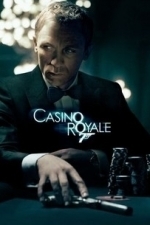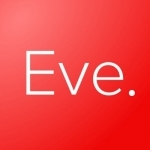
Period Tracker App - Eve
Health & Fitness and Medical
App
Eve by Glow is a savvy period tracker and sex app for women who want to take control of their health...
Sex and Slaughter in the Tent of Jael: A Cultural History of a Biblical Story
Book
In the Hebrew Bible, Judges 4-5 tells the lurid story of the heroic figure of Jael, a woman who...
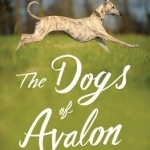
The Dogs of Avalon: The Race to Save Animals in Peril
Book
Greyhounds, bred to be the fastest racing dogs on earth, are streaks of lightning. Beautiful,...
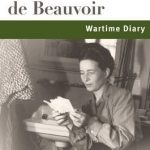
Wartime Diary
Simone de Beauvoir, Margaret A. Simons, Sylvie le Bon Beauvoir and Sylvie Le Bon de Beauvoir
Book
Written from September 1939 to January 1941, Simone de Beauvoir\u2019s Wartime Diary gives English...
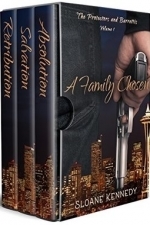
A Family Chosen (Volume 1): The Protectors and Barrettis
Book
Since all of my series cross over with one another, I've gotten many requests to bundle my...
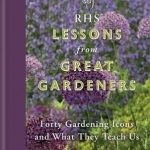
RHS Lessons from Great Gardeners: Forty Gardening Icons and What They Teach Us
Book
Since its earliest days, the art and science of gardening has been continually transformed and...
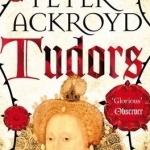
Tudors: A History of England Volume II: Volume II
Book
Rich in detail and atmosphere and told in vivid prose, Tudors recounts the transformation of England...
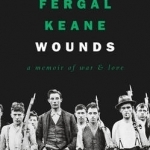
Wounds: A Memoir of Love and War
Book
A family story of a murder, blood and betrayal that tore an Irish town apart and causes men to be...
Gareth von Kallenbach (980 KP) rated Casino Royale (2006) in Movies
Aug 14, 2019
The idea is that rather than let several years pass in a series, or creating another sequel, filmmaker will go back to the beginning and start anew, in order to propel the franchise forward.
While remakes are nothing new in Hollywood, the idea to revamp series that recently had sequels is gaining ground. With the classic Horror film “Halloween” about to be remade, it seems that Hollywood is taking a long hard look at this new trend.
Perhaps the biggest example of this trend is in the new James Bond film Casino Royale, which introduces Daniel Craig as the new 007. The film takes the controversial twist to show the first mission of Bond and how he earned the rank of 00.
The twist is that the film takes place in the modern day and for the most part, casts aside all previous history and continuity that has been established by decades of Bond films.
The story involves bond on the trail of a Le Chiffre (Mads Mikkelsen), a man who makes his living laundering money for various insurgents thus providing them cash for their terrorist and military missions.
In exotic locales ranging from the Caribbean to Montenegro Bond soon finds himself facing off against Le Chiffre in a high-stakes poker game in order to defeat Le Chiffre and thus cripple him and his network.
Of course there are plenty of subplots, and some great action sequences especially a thrilling chase in a construction site and a break neck chase in an airport that underscores that the series still have plenty of life in it and always sets the standards for stunt work in action films.
That being said the film has its issues. First, it is to long, and lengthy sequences past without action or dynamic tension. I know this is a film based on a card game, but I come to a Bond film expecting action, sex, and thrills, not a series of poker games that cover nearly 30 minutes with precious little action between them.
In addition, there is precious little romance in the film. Sure there are gorgeous women and Bond never fails to charm them, but, how many times has Bond ever passed up spending the night with a woman, simply to get out of town fast to pursue a lead. I am sure Sean Connery’s Bond would have found the time to do both with his typical style.
This is not to say that Craig is bad in his role as he does a darker and much grittier Bond than we have previously films which will serve the franchise well in the future.
What concerns me most is that from the books and all previous history, Bond is an orphan of noble birth and is a member of upper society and radiates class, sophistication and nobility, and this was evident from his early years all through his recruitment from the Royal Navy into the ranks of espionage.
Craig’s Bond does not show these qualities but rather comes across as a common Joe who is playing the part of a heavy. The appeal of Bond is underscored by the fact that he is a suave individual who can bend a person to his will as easily as he can kill without mercy or regret.
While I do not like the decision to remake the franchise, I will say that the film was much better than I expected it to be and is one of the better Bonds in recent years. Here is hoping that for the next time out, the reigns are loosed on Craig so we can allow him to interpret Bond in a way that is original and fresh, yet stays true to the source material and history of the character.
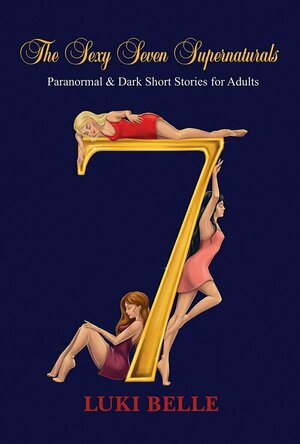
The Sexy Seven Supernaturals
Book
Seven haunting tales of women, young female adults, and an adolescent girl whose lives change...
Fiction Short Stories Fantasy Paranormal Erotica

